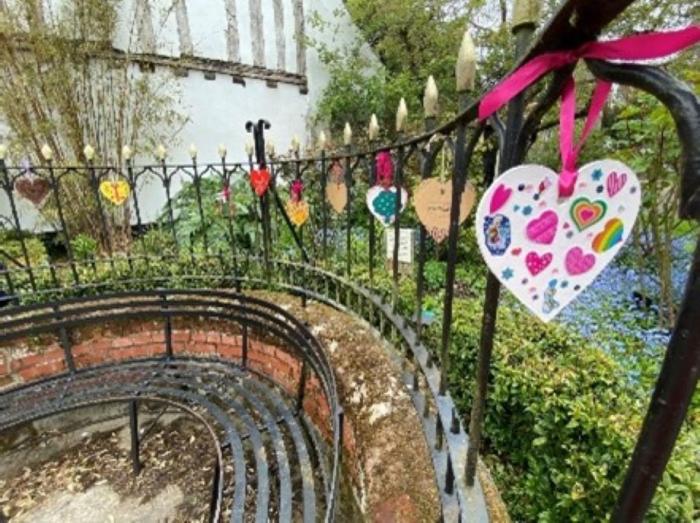Developing local communities of practice to help establish Compassionate Communities in Suffolk and Norfolk

Background
The pioneer of the international Compassionate Communities approaches, Professor Allan Kellehear, has identified that a person living at home with a life-limiting illness may come into contact with statutory services up to 5% of any day. He asks the question, ‘As a community, what can we do to occupy that 95%?’
In Western societies, death has increasingly become medicalised while crucial knowledge and skills at a community level have steadily declined. Compassionate Communities supports the idea of spreading a concept known as ‘death literacy’ – which is practical know-how about what to do and where to find support in a palliative or end of life care context. This involves mobilising community assets, harnessing and connecting inherent skills and resources that already exist at a neighbourhood level, to improve experiences for people experiencing life-limiting illness, loss, or grief.
Compassionate Communities: A public health approach to palliative and end of life care is a project within the ARC EoE’s Palliative and End of Life Care (PEOLC)Theme. The project (PEOLC13: https://arc-eoe.nihr.ac.uk/research-implementation/research-themes/palliative-and-end-life-care/compassionate-communities) seeks to support community development in line with Kellehear’s compassionate communities ethos and with NHS England’s PEOLC Ambition framework for local action (2021). More specifically, the project addresses Ambition 6: ‘Each Community is Prepared to Help.’
One aim within the PEOLC Theme’s Compassionate Communities project is to convene and embed a series of citizen-led communities of practice (CoPs). These are a well-established method to share, learn and develop the kinds of skills and practical know-how that are needed to grow death literacy and to provide support for people in the community who need to give or receive end-of-life-care. The researcher responsible for the Compassionate Communities project therefore turned to the ARC EoE’s Implementation Leads, who have expertise in facilitating CoPs to implement service change.
Implementation activity
Early discussions established that the evidence base for the effectiveness of Compassionate Communities warranted the inclusion of this project in the ARC’s portfolio. It also became clear that the complexities of running community-based CoPs for this purpose would require an innovative approach that differs from the ARC’s more clinically-focussed implementation projects.
Work to develop compassionate communities was already commencing, based at two hospices in Suffolk. (Similar work in Waveney – one of the ARC EoE’s populations in focus – had been planned but was on hold for local organisational reasons). In line with ARC’s usual methods, a CoP design group was set up, as a result of which it was agreed to have one CoP in each of the three Suffolk sites (‘Locality CoPs’) whose role will be to accelerate the establishment of sustained compassionate communities in their neighbourhoods. The three groups will be led by local community ‘connectors’ and leaders, whom the ARC Implementation Leads will co-ordinate, facilitate and train in the craft of establishing, facilitating and sustaining the locality CoPs. Other potential CoP leaders may also be involved in that training, both within and beyond the three current localities. The training has now commenced.
Outcome
Three sites are now engaged in this work and are beginning to develop a range of local Compassionate Community activity that will align with the compassionate civic charter
One of the Locality CoPs in Suffolk, linked to Waveney:
- held a well-publicised ‘Hearts Trail’ – an event for Dying Matters https://www.compassionatecommunitieseast.com/whats-on – that involved local school children in raising awareness about the compassionate communities project and what hospice offers as a community asset.
- works with a local Forest School to run intergenerational gatherings discussing birth, death and everything in between whilst being in the woods performing practical tasks.
- is developing a bereavement awareness session suitable for all sharing key messages on how you can provide support to someone recently bereaved.
- is arranging to train volunteers to become ‘conversation partners’ to hold advanced-care-planning conversations, for which they have created a booklet https://www.leavinggracefully.co.uk/booklet
The two other Suffolk towns have now formed four groups working as Locality CoPs, with around 30 members in total, who are commencing their contribution to the local development of compassionate communities.
The work of all the CoPs will be evaluated as part of the overall Compassionate Communities Project (PEOLC13).